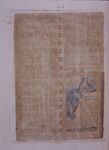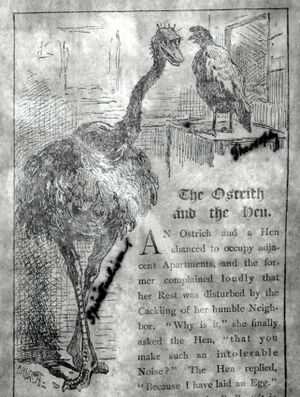< Spiritless Souls (continued from page 4-223) >
may be, many of them, as respectable as their accusers; as well as to condemn every single spirit—whom the Theosophist says has no spirit—that puts in an appearance under physical mediumship of any and every description, “from rapping to full form presentations”! robbing men before and after death—for man is a spirit and a spirit is a man—of his noblest attribute, without which all is as a blank, depriving him of that spirit which “the learned occultist,” who is quoted with so much respect by Mr. Massey in The Spiritualist of March 10th, 1876, alleges to be an universal gift; for does he not say, “The Hermetist, who sees with both eyes instead of with one only, observes that each atom,” (and Colonel Olcott allows and alleges that even a departed “elementary” is matter;) “that each atom, no matter where found, is imbued with that vital principle called spirit. Thus each grain of sand, equally with each minutest atom of the human body, has its inherent, latent spark of the Divine Light;” and Mr. Massey himself calls even a rudimentary being a spiritual being. And, again, we have another anomaly, in which it so chances that Col. Olcott and Mr. Massey do agree. They both tell us, “At birth the babe is but a duality, and becomes a trinity only when reason begins to manifest itself.” So this infant, which has been a rudimentary being, and as such also “a spiritual being,” is now robbed of its spirit on coming into the flesh. As if, as the learned occultist informs us, “every atom of the human body’’ had not “its inherent, latent spark of the Divine Light,” the infant’s, as well as that of the grown man! But the above is not more surprising than the assertion that the babe, bereft for a season of his spirit that it had as a rudimentary spirit, gets it back again at the age of seven, or thereabouts. Just at the very time when the innocence and simplicity of infancy is giving way; when the child is willing to listen to and to understand any evil that is taught him; just at the period, I say, when he may begin to contaminate the minds of his juniors, and the parents find that it is high time he should be sent to school, the Divine Spirit comes upon the boy! So, then, having been in his pure innocence a duality, like the impure astral men, he becomes, unlike the impure astral men, suddenly, a trinity, about the time of his loss of innocence; the astral men losing their trinity from loss of innocence. This, again, is especially inconsistent with Mr. Massey’s views previously expressed. Has he not given as his reason for justifying the assumption that a man may lose his spirit, the plea that “he has lost all sympathy with the divine spirit,” for, as Mr. Massey adds, “by sympathy alone is spiritual synthesis maintained.” And yet, only imagine a sharp young London arab; or, for that matter, a selfish, pampered, young nobleman, keeping up a sympathy with the Divine spirit “by which alone,” Mr. Massey says, is spiritual synthesis maintained! How are the Theosophites to bolster up so grave a paradox as this, that the child gains the Divine spirit when he loses his innocence, and the evil man loses his spirit for the same cause? Why may we not believe that the divine spirit is as much with the babe as with the man, only that it cannot manifest its intelligence through an infant’s brain, and has to wait until the brain becomes, by time and growth, a fitting tool for the spirit to work with? It was so with Jesus, who increased in wisdom as his brain increased, and became capable of elaborating the wisdom which was in him before Abraham existed, and was with him as a child, “Unseen, yet crescive in his faculty.” M. Kardec maintains, in Heaven and Hell, that a clever spirit may and does sometimes inhabit the body of an idiot, but is never able to manifest its intelligence, owing to the malformation of the brain. Yet may the spirit be always fretting under its imprisonment, which imprisonment has accrued as a punishment for misused talent in a former life. This appeared to me quite as reasonable, and more so, than taking up and dropping at convenience the divine spirit, at the caprice of a brand new society, which takes its cue from the decaying teachings of caste, and the dicta of the elementals. I lately visited a connection whom I had not seen for many years; he was a few years back a talented, hard-working lawyer, and a man of very high principle and integrity. He has now been for some years a hopeless imbecile, from softening of the brain. As he sat, quiet and helpless in his chair, I observed his eyes; they had their old look, and were as bright and intelligent, to all appearance, as ever. Ah! I thought, your spirit is all there, where it was, but it can no longer make itself intelligible through your softened brain. I suppose a babe’s brain is soft, and a quite unfit tool for intelligence, otherwise Jesus could not have lost his intelligence when he took upon himself the body and the brain of a babe.
I desire to call particular attention to one of the concluding sentences of Colonel Olcott’s article in The Spiritualist oi December 7th. He says:—“Mediumistic physical phenomena are not produced by pure spirits, but by ‘souls’ embodied or disembodied, and usually with the help of elementals.” He says also:—“The whole range of physical phenomena, from rapping to full form presentations, are manifestations of the power of either earth-bound elementaries, helped by elementals,” to which last the Theosophists are themselves so much indebted, “or the souls of the mediums themselves,” that is “souls” who have lost their spirit. There is no disguising, then, that the dictum of Colonel Olcott assumes every physical medium to be already an astral man—that is, a mere “soul,” who has already lost his trinity. The “soul” disembodied, only comes through the mediumship of the “soul” embodied, his confrere. I wish all my readers to mark this well, for I regard it as a very slanderous imputation, and the natural conclusion that every one must come to who views the question rationally, I think, must be this that no convert to these views, except he be an advocate by profession, can, under any circumstances, be justified in upholding table-turning, or any other physical mediumship, whether in the light or in the dark; least of all, to recommend it for practice in private houses. Home mediumship— and there is a medium in about every fourth family, we are told—almost always begins with physical phenomena in England and America, which comes alone, the Theosophists say, from astral spirits, lost men, in the body or out of it, for whom there is, under any circumstances, a dreadful future. Except, indeed, they turn Theosophists, and doubtless many Theosophists have been physical mediums, more or less, and already habituated to their elementals before their conversion. To form circles at home, where physical mediumship chiefly accrues, is to find out who are the astrals and elementaries of the family—those wretched doomed ones!—to be made pariahs of by the self-righteous members. And how about the children who are so often physical mediums, and for whom also this cruel, unwarranted, and unwarrantable future of the astral man, double or elementary, who have lost their trinity, is allotted? Well, one comfort is, that if they are under seven years of age, they are but dualities anyhow, and if they remain physical mediums can, to be logical, never attain to a trinity at all. We see, by this alone, to what unfathomable absurdities the doctrines of the Theosophists inevitably lead. They sow in the whirlwind and reap in the storm; gaining their sources of information from the wild, errant, irresponsible, mad forces of the elements, they reap deception on every side. Making self righteousness their elementary principle, they gather its natural fruit—uncharitableness. Drawing the source of their practices from the caste-ridden exclusive Brahmins, they gain not only the opprobrium of the liberal Buddhists, but that of all liberal-minded people. And no one can say that the narrow, exclusive, Calvinistic assumption of the favour of the gods held by the Brahmins, is participated in by the generality of individuals among the Hindoo people. No, they tell a very different story. The following is the prevailing opinion of the Hindoos regarding the ulterior destiny of the human soul, and by which they are apt to vex the anxious mind of the English missionary. The Hindoo puts it thus—“Sahib,’’ he says softly, “ yours is a good religion.” He pauses and smiles. The missionary smiles also, and hopes are high in his breast that he is catching a convert. But the Hindoo continues—“If yours is a good religion, so is ours.’’ He pauses again, and the missionary looks somewhat blank and begins to feel rather angry, while the Hindoo continues smiling, and thus he comes up again to the encounter—“Sahib,” he remarks, now somewhat pointedly, “our religion is better than yours; we all go up there”—he points to the skies. “You do not; you know it, and you teach it.” The average Hindoo, then (for the above is authentic), evidently thinks, with Canon Farrar, that the best religion is that which is the most hopeful for humanity, due respect being retained for justice. And I have never yet heard that they believe felicity is to be obtained with facility.
The Ostrich and the Hen... Moral. – The moral of the foregoing is not very clear, but it contains some reference to the Agitation for Female Suffrage.... and the present strife between Spiritualism & Theosophy |
Editor's notes


